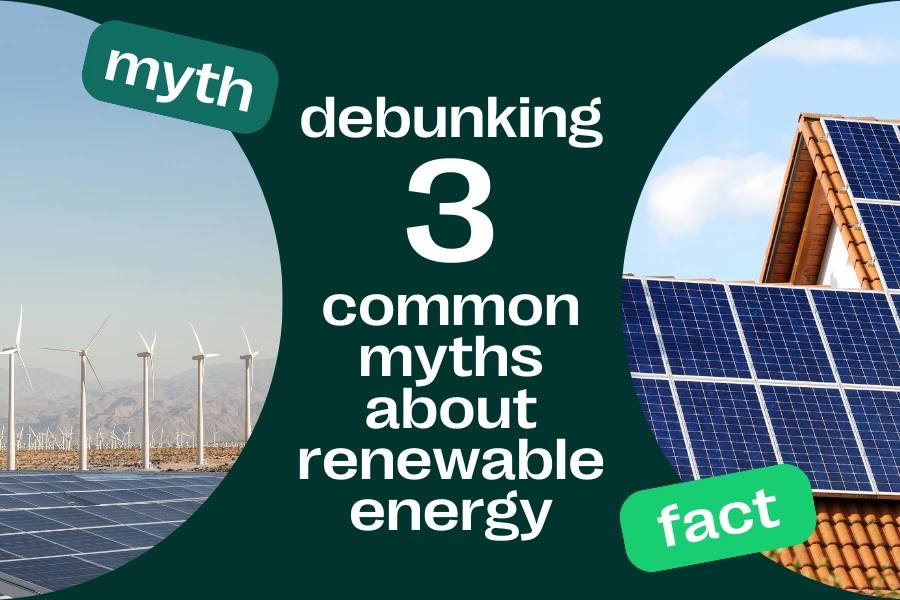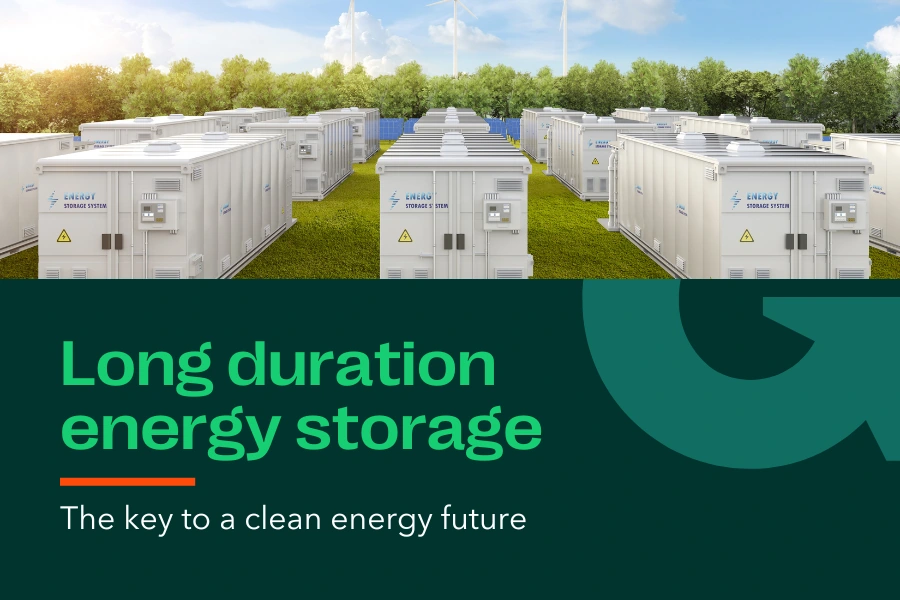Secrets of the Pioneers: Juliet Davenport
Greenhouse
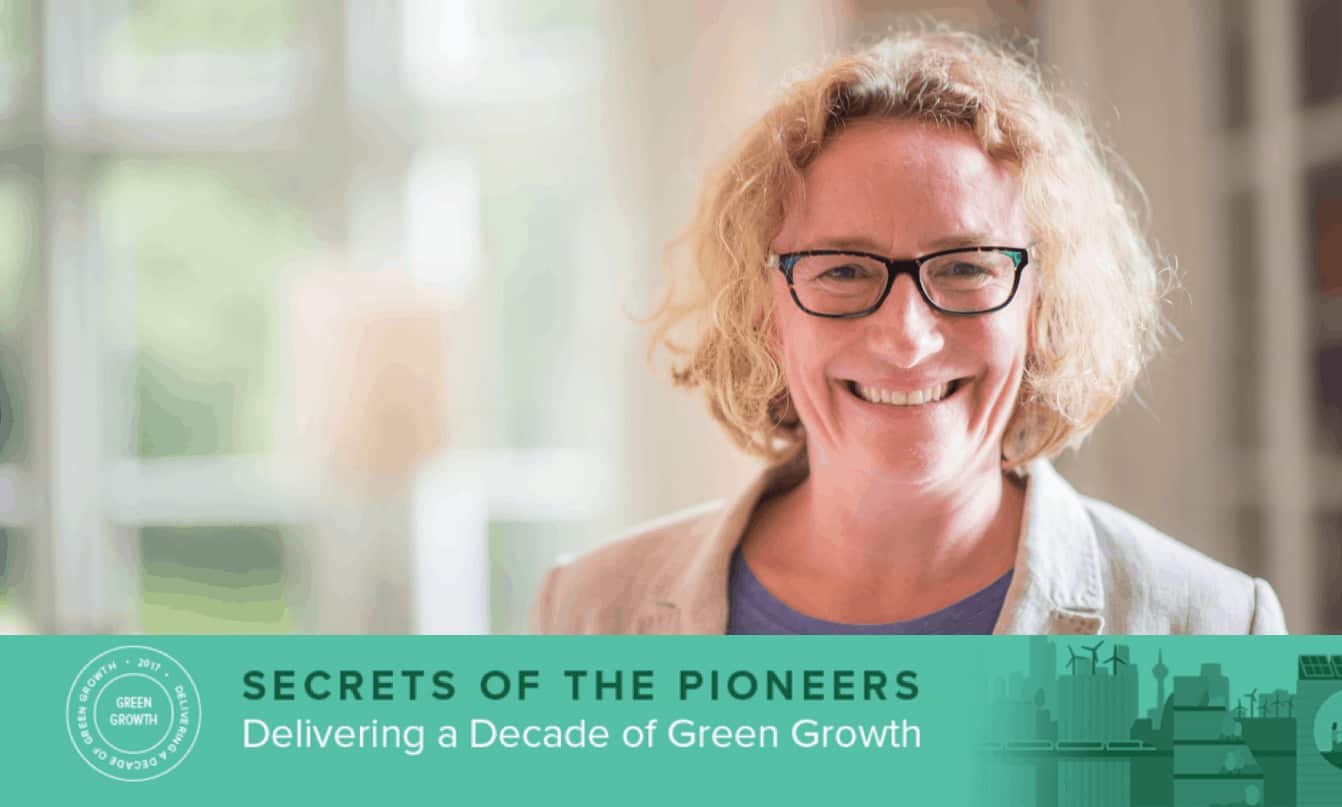
We talk to Juliet Davenport, the founder and chief executive of Good Energy, one of the UK’s leading green energy suppliers. The interview is part of a series for a report, Secrets of Pioneers, Delivering a Decade of Green Growth, which will be launched at the BusinessGreen Leaders’ Summit on 9th November 2017.
Good Energy was responsible for the first commercial onshore wind farm in the UK, at Delabole in Cornwall, and it was also the first company to launch a renewable energy marketplace in the UK, in collaboration with Open Utility.
In 2013 Juliet was awarded an OBE for services to renewables and in June 2015 she was appointed to the board of the Natural Environment Research Council.
Where were you in 2007?
In 2007, we had just taken over our back office company and integrated it into Good Energy, and relocated our whole team to the offices we have today.
The company was still pretty much in its infancy, with its focus on delivering 100 per cent renewable electricity to small businesses and household customers. We had one wind farm and had started working with micro generators to encourage a community of smaller renewable generators.
The HomeGen scheme we had developed then became the blueprint for the government’s Feed-in Tariff Scheme, which now sees over 900,000 households generating their own power today.
Where do you expect to be in 2027?
I think Good Energy will be a really different company in 2027. Perhaps not so much delivering electricity and gas, but instead delivering services for customers to generate, balance and use energy in their homes and businesses.
Products like our peer-to-peer trading platform Selectricity will be integral to helping our customers minimise their costs and ensure their energy use has little to no impact on the environment.
What is the most important lesson you have learned over the past 10 years?
Trust in your customers. Our very first share offering was prompted by listening to customers in our call centre, hearing that they wanted to be part of the business. Since then I have always valued our customers’ views - not only are they the best barometer of our performance, they give us an informal steer on the direction our business needs to take too.
What is your vision for the green economy in 10 years’ time and what do we need to get us there?
Looking at how far renewables have come in the last 10 years, my expectations are high! In 2007, less than 6GW of renewable capacity was deployed in the UK. This has increased by over 600 per cent to a massive 38GW in 2017. I don’t expect we will quite get to 100 per cent renewables in 10 years; although - looking at the developments of solar, onshore and offshore wind and tidal - we are in with a chance.
Clean tech - like batteries, electric vehicles and smart technology - is so important in supporting this change. Ongoing cost reductions as these technologies mature will allow for more and more renewables onto the system.
The final part of the puzzle is consumers. Keeping them engaged and connected with how their electricity is generated, stored, and used is the key to bringing us the real transformations.
 What will be the biggest changes from today’s world?
The biggest change will be bottom-up energy, rather than top-down. The journey from the grid to the end customer will look very different, with loads of different business models facilitated by digital systems that use AI or Blockchain to manage energy trading. The players will look completely different and it will be digital and data that rule the show.
What three sustainability challenges will be top of the agenda in 2027?
Firstly, decarbonising heat is a massive opportunity and a challenge because of the inefficiency of the existing housing stock in the UK. New technology and systems will be key to supporting people to use less energy in heating their homes.
Secondly, early solar panels and batteries will be reaching the end of their lives by 2027 and recycling will be a top priority to reduce mineral and electronic waste. A whole new industry will be built around reusing and recycling these.
Third, aviation and shipping are the slow movers on reducing greenhouse gas and pollution emissions. However, innovative technologies are coming through in these areas, which could see battery- powered planes become a reality.
Will the world be on course for two degrees?
I have a feeling we will overshoot 2C. The question is whether we will be able to bring it back and find ways of cooling our planet.
If you could invest in one clean technology through to 2027 which would it be and why?
That’s a tricky one because the UK needs a mixture of renewables and flexible clean technologies to keep us on track to meet our emissions reduction targets.
If just one, I would say tidal lagoon power because the UK should make the most of its fantastic tidal range. This could be a world leading industry that sees us gaining from a highly dependable and dispatchable source of renewable power.
What advice would you give to a sustainability professional starting their job today?
I’ve seen the renewables profession develop from its humblest beginnings, and seen the technological innovations and policy interventions that have come along the way. So I would say keep an open mind and your skill set broad; learn how to communicate and keep an eye on the technology. There will be unique opportunities out there in the future, so the ability to adapt is essential.
Are you optimistic or pessimistic about the future?
Optimistic. Always optimistic and smiling.
What will be the biggest changes from today’s world?
The biggest change will be bottom-up energy, rather than top-down. The journey from the grid to the end customer will look very different, with loads of different business models facilitated by digital systems that use AI or Blockchain to manage energy trading. The players will look completely different and it will be digital and data that rule the show.
What three sustainability challenges will be top of the agenda in 2027?
Firstly, decarbonising heat is a massive opportunity and a challenge because of the inefficiency of the existing housing stock in the UK. New technology and systems will be key to supporting people to use less energy in heating their homes.
Secondly, early solar panels and batteries will be reaching the end of their lives by 2027 and recycling will be a top priority to reduce mineral and electronic waste. A whole new industry will be built around reusing and recycling these.
Third, aviation and shipping are the slow movers on reducing greenhouse gas and pollution emissions. However, innovative technologies are coming through in these areas, which could see battery- powered planes become a reality.
Will the world be on course for two degrees?
I have a feeling we will overshoot 2C. The question is whether we will be able to bring it back and find ways of cooling our planet.
If you could invest in one clean technology through to 2027 which would it be and why?
That’s a tricky one because the UK needs a mixture of renewables and flexible clean technologies to keep us on track to meet our emissions reduction targets.
If just one, I would say tidal lagoon power because the UK should make the most of its fantastic tidal range. This could be a world leading industry that sees us gaining from a highly dependable and dispatchable source of renewable power.
What advice would you give to a sustainability professional starting their job today?
I’ve seen the renewables profession develop from its humblest beginnings, and seen the technological innovations and policy interventions that have come along the way. So I would say keep an open mind and your skill set broad; learn how to communicate and keep an eye on the technology. There will be unique opportunities out there in the future, so the ability to adapt is essential.
Are you optimistic or pessimistic about the future?
Optimistic. Always optimistic and smiling.
 This interview is one of a series which make up a report, Secrets of the Pioneers: Delivering a Decade of Green Growth, to be published on 9th November, coinciding with the BusinessGreen Leaders’ Summit.
We will continue to preview interviews on the Greenhouse PR blog this week. On Tuesday we have Mark Campanale, founder of Carbon Tracker. This is followed on Wednesday by Josh Hardie, Deputy Director-General for Policy and Campaigns at the CBI. On Thursday we will publish an interview with Adair Turner, Chair of the Energy Transitions Commission and on Friday our featured interview is with Kate Wylie, Global Sustainability Director at Mars. Five interviews published last week are still available on the blog.
This year marks the 10th anniversary of both BusinessGreen and Greenhouse PR, the specialist communications agency which supports businesses, entrepreneurs and campaigners working to create a green economy.
At Greenhouse, we support a wide variety of organisations pioneering new standards of sustainability across multiple sectors. Whether it’s fashion, finance or farming, we’re always on the look-out for new opportunities to reach our clients’ target audiences. If you’ve got a great story and need our help to tell it, we’d love to hear from you.
This interview is one of a series which make up a report, Secrets of the Pioneers: Delivering a Decade of Green Growth, to be published on 9th November, coinciding with the BusinessGreen Leaders’ Summit.
We will continue to preview interviews on the Greenhouse PR blog this week. On Tuesday we have Mark Campanale, founder of Carbon Tracker. This is followed on Wednesday by Josh Hardie, Deputy Director-General for Policy and Campaigns at the CBI. On Thursday we will publish an interview with Adair Turner, Chair of the Energy Transitions Commission and on Friday our featured interview is with Kate Wylie, Global Sustainability Director at Mars. Five interviews published last week are still available on the blog.
This year marks the 10th anniversary of both BusinessGreen and Greenhouse PR, the specialist communications agency which supports businesses, entrepreneurs and campaigners working to create a green economy.
At Greenhouse, we support a wide variety of organisations pioneering new standards of sustainability across multiple sectors. Whether it’s fashion, finance or farming, we’re always on the look-out for new opportunities to reach our clients’ target audiences. If you’ve got a great story and need our help to tell it, we’d love to hear from you.
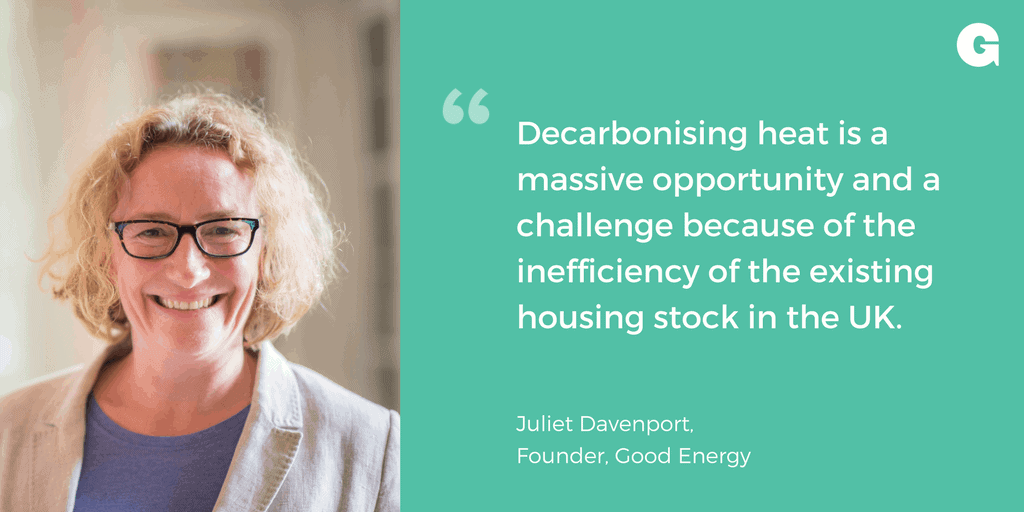 What will be the biggest changes from today’s world?
The biggest change will be bottom-up energy, rather than top-down. The journey from the grid to the end customer will look very different, with loads of different business models facilitated by digital systems that use AI or Blockchain to manage energy trading. The players will look completely different and it will be digital and data that rule the show.
What three sustainability challenges will be top of the agenda in 2027?
Firstly, decarbonising heat is a massive opportunity and a challenge because of the inefficiency of the existing housing stock in the UK. New technology and systems will be key to supporting people to use less energy in heating their homes.
Secondly, early solar panels and batteries will be reaching the end of their lives by 2027 and recycling will be a top priority to reduce mineral and electronic waste. A whole new industry will be built around reusing and recycling these.
Third, aviation and shipping are the slow movers on reducing greenhouse gas and pollution emissions. However, innovative technologies are coming through in these areas, which could see battery- powered planes become a reality.
Will the world be on course for two degrees?
I have a feeling we will overshoot 2C. The question is whether we will be able to bring it back and find ways of cooling our planet.
If you could invest in one clean technology through to 2027 which would it be and why?
That’s a tricky one because the UK needs a mixture of renewables and flexible clean technologies to keep us on track to meet our emissions reduction targets.
If just one, I would say tidal lagoon power because the UK should make the most of its fantastic tidal range. This could be a world leading industry that sees us gaining from a highly dependable and dispatchable source of renewable power.
What advice would you give to a sustainability professional starting their job today?
I’ve seen the renewables profession develop from its humblest beginnings, and seen the technological innovations and policy interventions that have come along the way. So I would say keep an open mind and your skill set broad; learn how to communicate and keep an eye on the technology. There will be unique opportunities out there in the future, so the ability to adapt is essential.
Are you optimistic or pessimistic about the future?
Optimistic. Always optimistic and smiling.
What will be the biggest changes from today’s world?
The biggest change will be bottom-up energy, rather than top-down. The journey from the grid to the end customer will look very different, with loads of different business models facilitated by digital systems that use AI or Blockchain to manage energy trading. The players will look completely different and it will be digital and data that rule the show.
What three sustainability challenges will be top of the agenda in 2027?
Firstly, decarbonising heat is a massive opportunity and a challenge because of the inefficiency of the existing housing stock in the UK. New technology and systems will be key to supporting people to use less energy in heating their homes.
Secondly, early solar panels and batteries will be reaching the end of their lives by 2027 and recycling will be a top priority to reduce mineral and electronic waste. A whole new industry will be built around reusing and recycling these.
Third, aviation and shipping are the slow movers on reducing greenhouse gas and pollution emissions. However, innovative technologies are coming through in these areas, which could see battery- powered planes become a reality.
Will the world be on course for two degrees?
I have a feeling we will overshoot 2C. The question is whether we will be able to bring it back and find ways of cooling our planet.
If you could invest in one clean technology through to 2027 which would it be and why?
That’s a tricky one because the UK needs a mixture of renewables and flexible clean technologies to keep us on track to meet our emissions reduction targets.
If just one, I would say tidal lagoon power because the UK should make the most of its fantastic tidal range. This could be a world leading industry that sees us gaining from a highly dependable and dispatchable source of renewable power.
What advice would you give to a sustainability professional starting their job today?
I’ve seen the renewables profession develop from its humblest beginnings, and seen the technological innovations and policy interventions that have come along the way. So I would say keep an open mind and your skill set broad; learn how to communicate and keep an eye on the technology. There will be unique opportunities out there in the future, so the ability to adapt is essential.
Are you optimistic or pessimistic about the future?
Optimistic. Always optimistic and smiling.
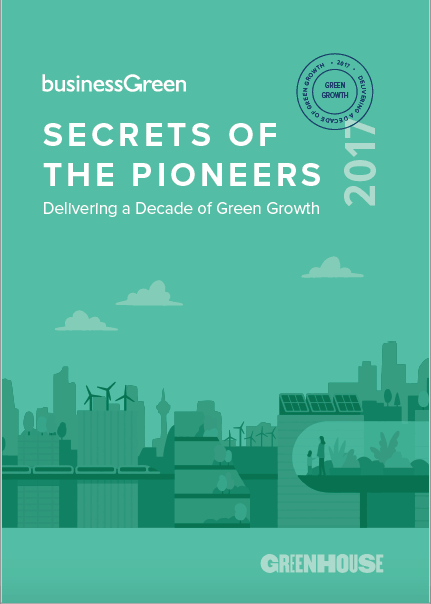 This interview is one of a series which make up a report, Secrets of the Pioneers: Delivering a Decade of Green Growth, to be published on 9th November, coinciding with the BusinessGreen Leaders’ Summit.
We will continue to preview interviews on the Greenhouse PR blog this week. On Tuesday we have Mark Campanale, founder of Carbon Tracker. This is followed on Wednesday by Josh Hardie, Deputy Director-General for Policy and Campaigns at the CBI. On Thursday we will publish an interview with Adair Turner, Chair of the Energy Transitions Commission and on Friday our featured interview is with Kate Wylie, Global Sustainability Director at Mars. Five interviews published last week are still available on the blog.
This year marks the 10th anniversary of both BusinessGreen and Greenhouse PR, the specialist communications agency which supports businesses, entrepreneurs and campaigners working to create a green economy.
At Greenhouse, we support a wide variety of organisations pioneering new standards of sustainability across multiple sectors. Whether it’s fashion, finance or farming, we’re always on the look-out for new opportunities to reach our clients’ target audiences. If you’ve got a great story and need our help to tell it, we’d love to hear from you.
This interview is one of a series which make up a report, Secrets of the Pioneers: Delivering a Decade of Green Growth, to be published on 9th November, coinciding with the BusinessGreen Leaders’ Summit.
We will continue to preview interviews on the Greenhouse PR blog this week. On Tuesday we have Mark Campanale, founder of Carbon Tracker. This is followed on Wednesday by Josh Hardie, Deputy Director-General for Policy and Campaigns at the CBI. On Thursday we will publish an interview with Adair Turner, Chair of the Energy Transitions Commission and on Friday our featured interview is with Kate Wylie, Global Sustainability Director at Mars. Five interviews published last week are still available on the blog.
This year marks the 10th anniversary of both BusinessGreen and Greenhouse PR, the specialist communications agency which supports businesses, entrepreneurs and campaigners working to create a green economy.
At Greenhouse, we support a wide variety of organisations pioneering new standards of sustainability across multiple sectors. Whether it’s fashion, finance or farming, we’re always on the look-out for new opportunities to reach our clients’ target audiences. If you’ve got a great story and need our help to tell it, we’d love to hear from you. 